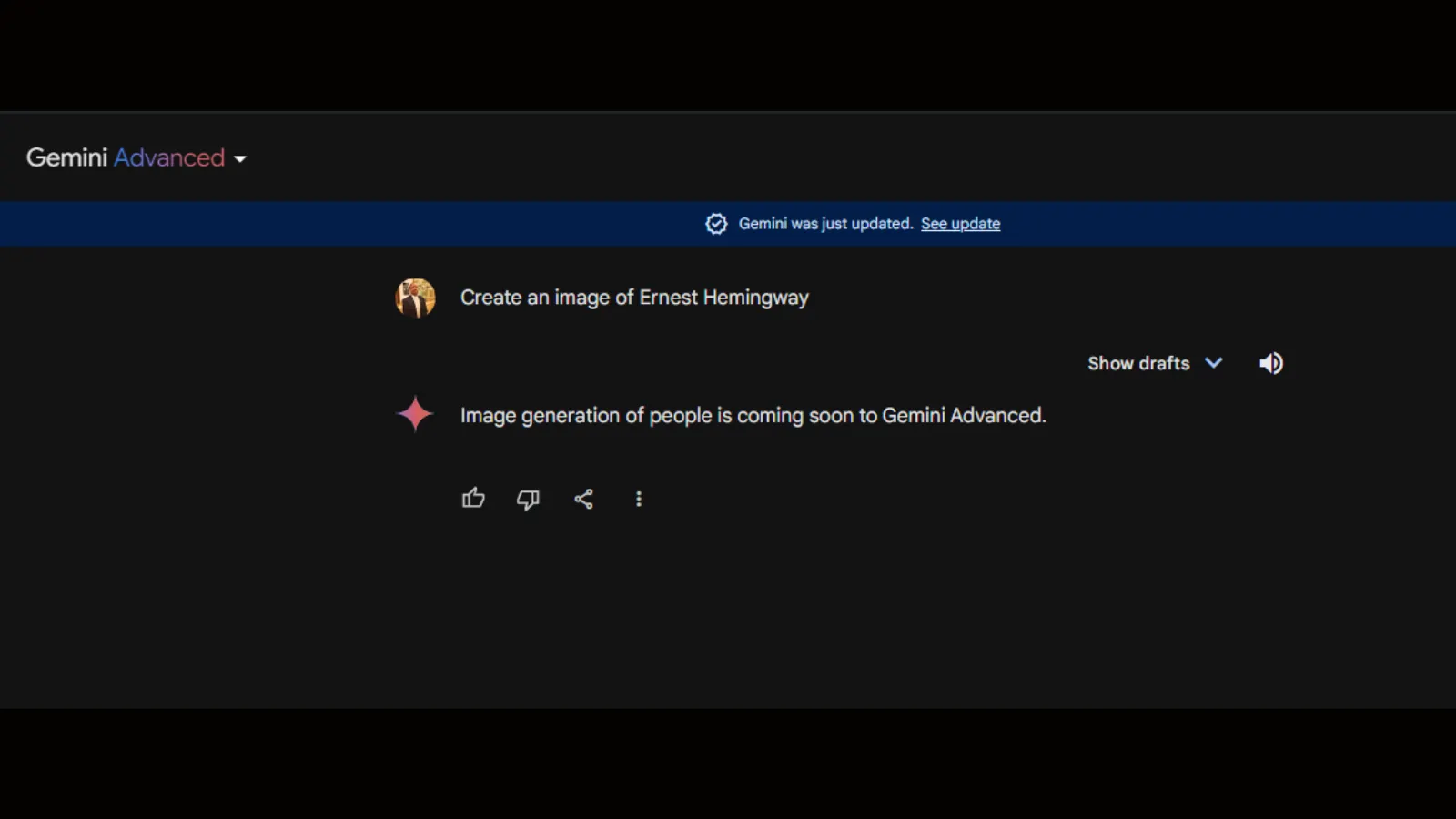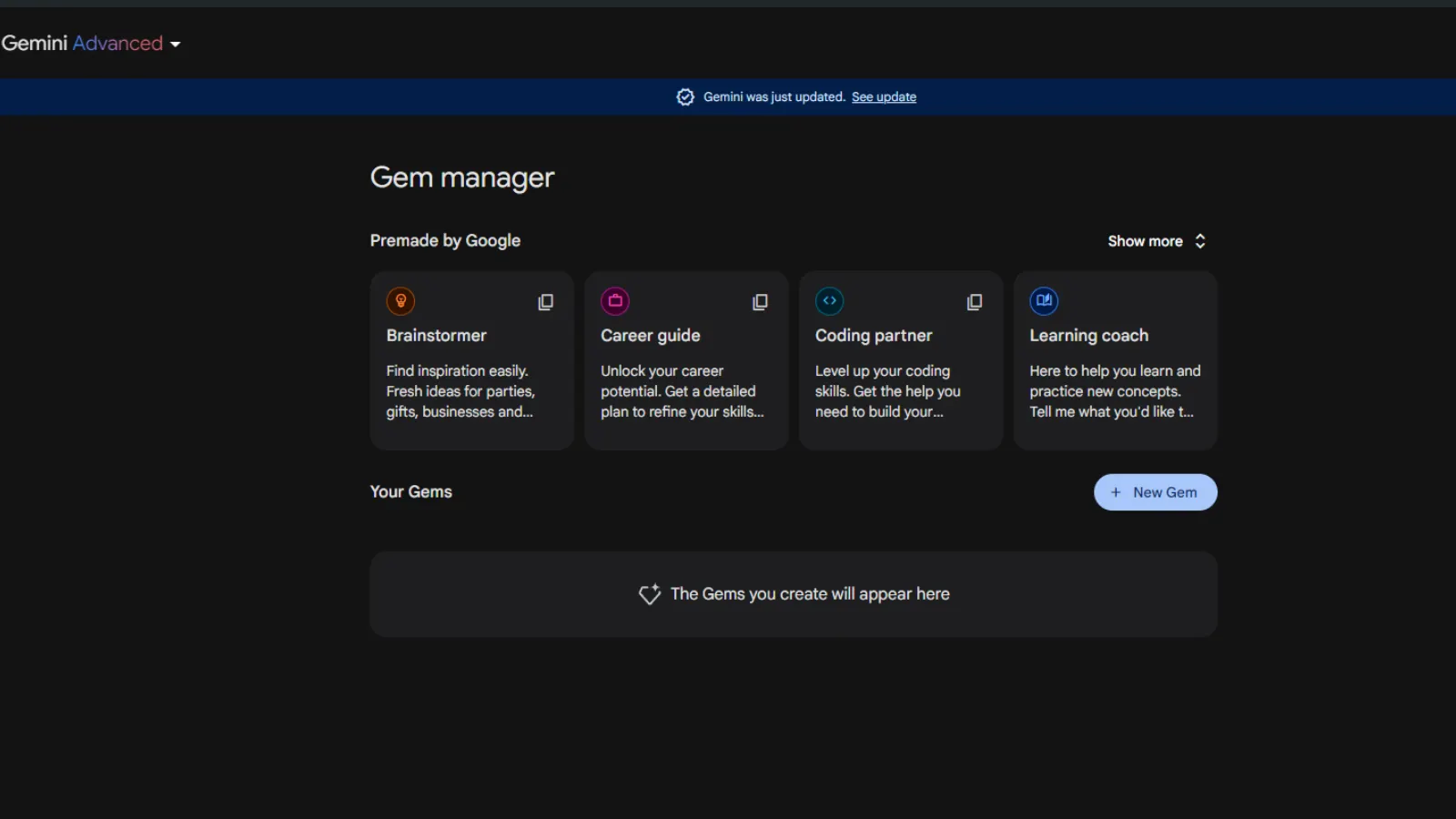In a bid to take on OpenAI’s dominance in the AI marketplace, Google launched its first major update to its flagship AI model, Gemini, with the release of customizable “Gems,” the company said on Wednesday.
Gemini will also directly integrate the company’s AI image generator Imagen 3. It will still not generate images of people, however, after an earlier release produced problematic images and forced Google to take the tool offline.
Similar to the GPT feature from OpenAI’s ChatGPT, Gems—which Google first announced during Google I/O in May—gives users the ability to create a modular set of customized AI assistants built on the Gemini model that can be used for projects ranging from coding to career advice. According to Google, Gems are available for Gemini Advanced, Business, and Enterprise users.
“With Gems, you can create a team of experts to help you think through a challenging project, brainstorm ideas for an upcoming event, or write the perfect caption for a social media post,” Google said in a statement. “Your Gem can also remember a detailed set of instructions to help you save time on tedious, repetitive, or difficult tasks.”
For creators who may not have the exact phrasing in mind to build their Gems, Gemini also features an AI-powered rewrite feature to fine-tune the prompt that sets one up. The outputs of Gems can be shared via a link on social media, and also shared to Google Docs, and Gmail to add to an email draft.
“With regards to sharing, the Gems you create are for personal use at this time,” a Google representative told Decrypt. “You can share chats that you’ve had with Gems by creating a public link, but shared chats with Gems cannot be continued by others you share the link with.”
This is a more limited offering than GPTs from OpenAI, which can be shared more fully with others who can use the same customization.
The integration of its Imagen 3 image generator also expands the built-in capabilities of Gemini, and the tech giant reiterated its cautious approach to the rollout.
“We conduct extensive internal and external red-teaming testing and collaborate with independent experts to ensure ongoing improvement,” the Google representative said. “We have a Prohibited Use Policy and prohibit responses that violate our policies.”
Google launched Imagen 3 earlier this month after originally announcing it in May. It faces fierce competition from tools like Dall-E from OpenAI, Midjourney, and Flux—built into Elon Musk’s Grok chatbot.

“Imagen 3 sets a new standard for image quality, generating images with just a few words,” Google said. “You can even ask Gemini to create images in various styles—like photorealistic landscapes, textured oil paintings, or whimsical claymation scenes.”
While Gemini is able to create pictures of animals and objects, the one thing it still can not do is create pictures of humans.
“Image generation of people is coming soon to Gemini Advanced,” the chatbot will respond if asked to do so.

“With Imagen 3, we’ve made significant progress in providing a better user experience when generating images of people,” Google said. “We don’t support the generation of photorealistic, identifiable individuals, depictions of minors or excessively gory, violent or sexual scenes.”
“Of course, as with any generative AI tool, not every image Gemini creates will be perfect, but we’ll continue to listen to feedback from early users as we keep improving,” Google added. “We’ll gradually roll this out, aiming to bring it to more users and languages soon.”
Generally Intelligent Newsletter
A weekly AI journey narrated by Gen, a generative AI model.
Credit: Source link




